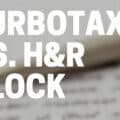It is never too early to start thinking about your retirement savings plans. But all too often, we don’t take our financial future seriously enough.
According to Bloomberg, two-thirds of Americans don’t contribute to a 401k or a similar employer-sponsored scheme.
Social Security could (just about) cover fundamental costs of retirement living — the average payout in June 2018 was $1,413.37 per month, according to US News.
But, unless you’re happy to live a luxury-free retirement, you will certainly want to start saving now.
Employee-sponsored 401k schemes are the most common form of saving packages in the States, and there are plenty of different companies to choose from.
To help you out, we’ve put together this in-depth Mass Mutual 401k review. We’ll take a look at who they are, what they offer and help you decide whether their 401k is for you.

What is a 401k?
Mass Mutual says: “A 401k is a type of workplace retirement savings plan that allows employees to contribute a portion of their income with pre-tax dollars into their own retirement investment account.”
In other words, a 401k scheme is a voluntary savings process for your retirement. It’s the most common form of saving system in the United States.
The 401k scheme first came into being during the 1980s as a way to supplement pensions. However, as pensions started to become more and more expensive, employers began to phase them out in favor of 401k policies.
How Do They Work?
Your 401k contributions are automatically taken from your pay each month and put towards your savings. Your employer, who is your plan sponsor, will most likely match payments you make (more on this later). That means when you retire you should have a healthy pot of money to live on.

Why Get a 401k?
Social Security won’t cover retirement…
The first thing that needs to be reiterated is that Social Security payouts are not huge by any means. As we mentioned earlier, the average payout currently sits just under $1,500 a month.
You might think that’s enough. However, the average spend for adults over 65 years old is $46,000, according to The Motley Fool. They go on to add that the average length of retirement is 18 years, which means retirement will cost $828,000.
The average Social Security payout is not even close to covering it. With an average payout of $1,413.37 per month over 18 years, you will receive $305,287.92. That’s $522,713.08 short of the target.
… and it might not even exist
Unfortunately for those looking to retire on Social Security, there’s even more bad news.
CNBC recently reported that, unless issues are dealt with soon, it could be insolvent by 2034. Of course, that’s a long way off, and a lot will happen between now and then. However, the message is clear: you need to start saving for retirement as soon as possible.
Benefits of a 401k
Employer matching
If your company has a 401k scheme, there’s also a chance they will participate in matching contributions. In other words, if you put money towards your retirement, your company will also put some money toward it. A very typical match would be, for every $1 you put in, your company would contribute 50 cents. This isn’t unlimited (you can’t just put a whole month’s wage in and get an extra 50% top up) but it’s still free money towards your retirement.
Compounding
Many 401k schemes also benefit from compounding. This is when the earnings on your savings are reinvested. This might produce more earnings and more reinvestment. Again, that’s more free money if all goes well.
Tax breaks
Your 401k savings are taken out of your paycheck before it has been taxed. Why’s that great? Well, it means your taxable income is reduced. In the short term, that means you might pay less tax on a yearly basis. It's worth noting, however, that the IRS will reclaim their money when you start withdrawing.

Is a 401k Enough for Retirement?
The benefits of a 401k should be pretty obvious by now. But getting one doesn’t necessarily mean you are going to be financially secure in retirement.
Mass Mutual is still warning that you need to think about other forms of savings. Here’s why:
Limited contributions
Unfortunately, with 401k schemes, you can’t just put as much money as you want into them. That’s because the IRS has a limit on the amount you can save on a pre-tax basis. At the moment, that cap is set at $18,500 for those under 50 years old. Savers over 50 are allowed catch-up contributions of $6,000 per year more. Overall, this is only really going to be an issue for higher earners, but it’s still something you will need to take into consideration. The key is to start saving as early as possible.
Taxes
It’s important to understand that your 401k is not tax-free; you start paying it when you make your withdrawals. Your 401k payouts are taxed like a normal income. That means you need to make sure you can afford whatever you withdraw. Don’t take out a huge lump sum and put yourself in a tax bracket that you can’t afford.
Withdrawal rates
The final issue with 401k schemes is that many retirees take out and spend more than they can afford. Mass Mutual points out the suggested 4% withdrawal rate per year, which many people still follow, is an outdated figure. Current suggestions say a 2.8% withdrawal rate is a better rule of thumb.
However, Evan Inglis, a senior vice president at Nuveen Asset Management, told USA Today that taking your age and dividing it by 20 will give a more accurate withdrawal rate. So if you are 73, you can withdraw at a 3.65% rate per year (73 ÷ 20 = 3.65).
Should You Put Your 401k in an Annuity?
The honest answer: probably.
Annuity payments offer relative long-term financial stability. Rolling your 401k into a variable annuity will provide you with guaranteed annuity payments that could grow as time goes on.
However, you need to make sure the expenses aren’t too high. You don’t want to be spending everything in your retirement account on fees.

Who is Mass Mutual?
Mass Mutual, also known as Massachusetts Mutual, is a life insurance company formed in Massachusetts in 1851. They offer a range of financial services including insurance, retirement, investment options, and planning schemes. Their goal, they say, is “to help people secure their future and protect the ones they love.”
In the latest Fortune 500, Mass Mutual came 93rd with profits of $513 million. That was a fall from the previous year’s position of 77th. The plunge included a 59.7% decrease in profits, which Fortune puts down to “tax reform and an increase in realized investment losses.”
What does mutual mean?
The ‘Mutual’ half of their name, gives some idea to the company structure. As a mutual company, they do not have shareholders. Instead, customers with policies are allowed to vote for the Board of Directors. On top of that, policy owners might be entitled to a share of the dividends.
What Does Their 401k Include?
Single point of contact
Mass Mutual has tried to make communication as simple as possible by giving their policy owners a single point of contact. So rather than being passed around a call center like a hot potato, you will speak to the same person each time. On top of that, plan participants also receive regular check-ups, reports, and info to help keep on top of their 401k savings.
Communication program
Their communication drive is also backed by a modern communication center called RetireSmart. This system includes targeted campaigns through email, direct mail or their website. In short, there’s a lot of ways you will be able to learn more about your scheme. Mass Mutual’s team of 80 retirement education specialists is a bonus. These financial advisors can meet a company’s employees on a group or one-to-one basis to discuss their retirement plans.
Flexible investments
Mass Mutual is one of the world’s leading investment organizations so, unsurprisingly, they have excellent flexibility when it comes to investments. The upshot of this is that, if you play your cards right, you could earn even more for your retirement.
Plan integration
Mass Mutual also offers the chance for employers to combine all their employees’ retirement schemes in one place. Thanks to the size of the company, there is a huge range of schemes and plans on offer. Plus Mass Mutual can provide custom-tailored solutions.

The good
Improved 401k plans for small businesses
Mass Mutual has recently announced it is looking to make it easier for small businesses to offer 401k plans.
This has come in the form of an upgrade to its Aviator plan “with up to $15 million in retirement assets, offering simplified investment lineups, affordable pricing, and fiduciary support services.”
It includes:
- A reduction in costs plus a new breakpoint for fees.
- More zero-revenue investments, which includes over 500 options from 60 investment managers.
- Easier set-up and admin, including automated services.
- Newly automated employee engagement campaigns which, they say, “use sophisticated targeting and behavior science techniques.”
There will also by a new plan on offer, called Aviator Pro. This plan will include much more administration help for small businesses that might otherwise struggle with the paperwork.
Tina Wilson, head of Mass Mutual’s Investment Solutions Innovation said: “Many small businesses don’t have benefits departments so administering a 401k plan can be a challenge. Aviator Pro is designed as a turnkey solution with guardrails designed to help small businesses avoid making costly administrative or investment mistakes.”
The bad
Small business fees were expensive
The recent announcement is, of course, welcome news.
However, a 2017 study of 11 large providers found Mass Mutual charged the highest fees for small businesses — an average asset-based fee of 1.95%. In second place was Nationwide (1.87%) and third was Transamerica (1.76%).
The cheapest was ADP which charged an average of 1.19%.
Despite that, Mass Mutual has recently moved into the top 10 small business 401k providers, according to ForUsAll.
That does mean that nine other providers are more popular with small businesses. Paychex came out on top, while ADP and John Hancock came second and third respectively.
Interestingly, Mass Mutual fared better for mid-sized businesses, placing seventh overall.

What’s the Verdict?
Whether Mass Mutual is the 401k provider for you will really depend on who you are.
Their recent announcement that they are slashing fees for small businesses is certainly welcome. If you are an employer, you will also be pleased to hear they are helping out with the administration.
However, the fact they came top of the tree when it came to small business 401k fees is concerning.
However, their sheer range of products and services makes it very easy to keep all your plans in one place. This one-stop shop approach could be hugely beneficial for companies with limited time on their hands.
What you need to do
Unfortunately, it’s all going to come down to research. You need to get in contact with a number of providers and speak to them about the services they offer and the fees you can expect.
If you’re trying to hunt down specific costs, you’re going to struggle with Mass Mutual. They do offer a five-page leaflet explaining their fees, but you’re going to be much better off speaking to an advisor.
They do seem to have put a great deal of effort into making their communications as simple as possible for their users, so that should be relatively easy.
What are the alternatives to a 401k?
Traditional IRA
Traditional IRAs are an easy alternative to a 401k. The contributions you make can be (at least) partially deductible and won’t be taxed until withdrawn.
With traditional IRAs, you could be looking at a tax deduction of up to $5,500 per year if you’re under 50. Those over 50 can get $6,500 in deductions. Be warned, however, if you take money out of your traditional IRA before 59 and a half years old, you will be taxed and hit with a 10% penalty.
Roth IRA
Roth IRAs differentiate from traditional IRAs because the withdrawals are tax-free. However, the contributions you make are from post-tax income. There’s no escaping the IRS, we’re afraid.
The benefits are that you can access your money at any time without a penalty — unlike traditional IRAs. You could even take out a large lump sum if you’d like. The negatives are that only people earning under a certain amount can contribute to a Roth IRA.
401k v IRA
Whether you opt for a 401k scheme or IRA is going to depend on your personal circumstances and preferences. If your employer offers a 401k, then a lot of the work will be done for you, and you might find that easier to manage. IRAs are individual accounts that need to be created outside of work.
Check out our in-depth look at the best self-directed IRA companies to see whether an IRA could work for you.
Other Alternatives
Life insurance is a viable alternative investment to a 401k. Typically you will pay a certain amount into the insurance policy each month. When the policyholder passes away a death benefit is paid to the beneficiaries. Taking out a life policy does not stop you from having a 401k so if you can afford it, get both.
Investors may also be interested in mutual funds, in which money can be pooled together for investment opportunities or long-term care insurance, which can cover costs if anything goes dramatically wrong in your life.

Conclusion: Mass Mutual 401k review
The question you need to ask yourself — no matter what age you are — is what do you want to do when you retire?
If the answer is absolutely nothing (literally, nothing) then maybe you will be alright without payments from a retirement income. For everyone else, a 401k is an excellent option.
Unfortunately, too many people are struggling to save for the future. More than half of millennials have saved less than $10,000 for retirement, according to GoBankingRates. What’s more, they say 42% of Americans will retire with less than $10k saved.
Retirement should be one of the best times of your life. You have complete freedom with no work or no real commitments to tie you down.
Many people dream of bucket-list adventures or traveling. However, you can forget that if you don’t put money toward a 401k scheme.
The Mass Mutual 401k offering is certainly an intriguing one. They do seem to be making steps in the right direction when it comes to the products they offer small businesses.
Whether it will be worth it for you will take a fair amount of time. Make sure to research as many retirement services as possible. If you want to keep your retirement plans all in one place, look out for service providers who can also offer you other schemes such as an insurance policy.
The effort will all be worth it when you can afford long beach holidays in the Bahamas when you are retired.
For more info on different types of 401k, check out our John Hancock review.
Alternatively, if you really want a wonderful retirement, why not check out our guide on how to retire like a millionaire.


